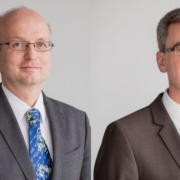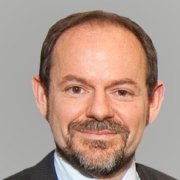OPIS Accelerated approval for orphan drugs and the possibility to have market authorisation
after a successful Phase II trial have made research in rare diseases more attractive to sponsors.
However, challenges and uncertainties remain numerous and designing scientifi cally robust,
patient-centered trials requires proper conceptualisation.
ADVERTISEMENT
Unitary Patent:?Ingve Stjerna, plaintiff before the Federal Constitutional Court, argues that the UPC system does not deliver on its promise to make European patents cheaper and more affordable to Small and Medium-sized Enterprises (SMEs). European Biotechnology asked José Pfizer, Head of Intellectual Property at 4SC AG, to address the issue from the perspective of a German SME.
Today, there are greater expectations among healthcare providers for engagement with life sciences companies to be digital. For life sciences companies, there is significant potential to leverage digital technologies to reach more HCPs.
The European Biotech market is extremely dynamic, acknowledged as being number two in the world of market rankings. This is a cause for celebration!
On 23 June 2016, the UK voted to leave the EU and, thereby, decided for Brexit. As of today, it is still uncertain what the exact implications of this decision will be, including important questions regarding how the political and legal nature of the future relationship between the UK and the EU will be.
EuropaBio has developed recommendations for changes to the Summary of Product Characteristics (SmPC) of biosimilars that would result in an enhanced level of transparency for the label.
We are living in a world of cutting-edge science, which holds the potential to transform the landscape for patients living with common and rare diseases within the next five years. This is of particular importance as we face a demographic evolution that will see an already-aging population expand significantly and rapidly across the globe.
Spanish Capital Cell was one of the first equity crowdfunding platforms that specialised in life sciences and biotech projects in Europe. In March, the group raised more than €1m through funding through the Spanish biotech campaign Bionure a new record. EuroBiotech talked to Capital Cell founder Daniel Oliver about their recent expansion into the UK and the development of the European life sciences crowdfunding scene.
Bayer has always been extremely supportive of the new Unitary Patent System (UPS) and has been one of the driving forces behind it within the German industry. However, the company will not be putting its full portfolio through the UPS and the Unified Patent Court (UPC).










